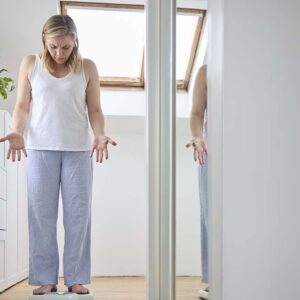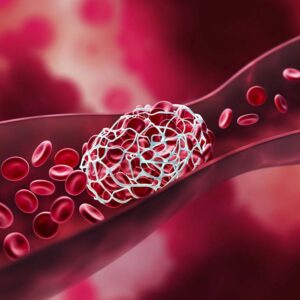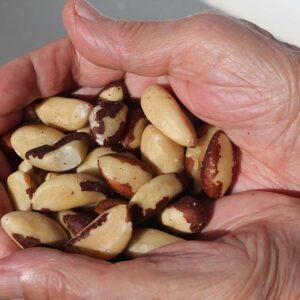
The Most Powerful Health Solution
From Alzheimer’s to anxiety, from diabetes to depression, the spiraling, signature maladies of modern life suggest Americans are sick and sad.
Why?
Junk food, junk pharma, and junk culture all are just symptoms.
Charles Hugh Smith of the indispensable Of Two Minds blog reveals the root.
“Financializing the human experience,” he says, is the social plague of our age:
“It means turning everything into a financial transaction that profits an enterprise and the state. Since the state needs profitable enterprises to generate its tax revenues (and to pay wages that generate payroll/income taxes), the state is an implicit partner in every financializing the human experience transaction.”
A hallmark of the trend’s pervasiveness is the fact that few notice it. Consider that:
- Tools once lent freely among neighbors are now bought from the big box store — even if only for one use
- Child care, once confined within the affectionate bonds of friends and family, is outsourced to day care centers
- Dinner at home with family is becoming ever rarer — this year, for the first time, Americans spent more on dining out than on groceries.
And on and on, and all increasingly seen as unremarkable.
An entire generation is growing up without experiencing the friendly, cooperative, cash-free interchanges that were once ubiquitous.
Which matters, because financialization of transactions once propelled only by love and respect is both a cause and an effect of loneliness.
And loneliness kills.
The Risks of Isolation
A Brigham Young University study published in March 2015 combined results of 70 earlier studies encompassing about 3 million people.
Loneliness, it found, conveys more health risk than obesity.
In fact, loneliness is roughly as dangerous to health as alcoholism.
The report concludes that “feeling” lonely increased the risk of death during the course of the studies by 26 percent.
But what about people in these studies who avoided others because, they said, they prefer to be alone?
Healthwise, this kind of person fared even worse.
Voluntarily living alone increased the risk of death by 32 percent.
Unfortunately, these days, people with this preference seem to be more numerous, and more ostensibly satisfied with themselves. My Facebook feed overflows with advice on “How to Treat Introverts Like Me.“
“It’s just who I am,” they proclaim. “Give me my space.”
But I would encourage the proud introverts to consider the extent to which their behavior is cultivated.
As Charles Hugh Smith points out, governments, banks, and corporations of all stripes profit from social atomization. And they appear to be winning in this effort.
In the 1920s, five percent of Americans lived alone.
In 2013, it was 27 percent.
“Not only are we at the highest recorded rate of living alone across the entire century, we’re at the highest recorded rates ever on the planet,” said the study’s co-author, Tim Smith. “With loneliness on the rise, we are predicting a possible loneliness epidemic in the future.”
So…
Isolation can be seductive. No compromise required. No quid pro quos exacted.
In this modern American “society of the maximal self,” as psychologist Martin Seligman has termed it, the advantages of sequestering oneself can seem multifold.
And the potential hassles of emotion-driven interaction overwhelming.
But at least consider this idea: Your — our — adoration for isolation is not us talking.
It’s an avaricious, parasitic culture talking through us.
No human being truly thrives in utter isolation, including misunderstood artists like you… and me.
We can loudly insist that we are thrilled, delighted, intoxicated by autonomy.
But if we carefully consider the times when we’ve actually been happiest, the review inevitably takes us to a moment that was intimate — or crowded — but almost certainly not alone.
There’s more to robust health than an optimized diet, disciplined exercise, and maximized sleep.
Your most potent health solution is someone else.
And the lovely part is someone else’s most potent health solution is you.
(If “financialize” is a word, “definancialize” is as well. I’d love to hear how you have definancialized your life. Please send your story to healthfeedback@lfb.org.)
Regards,

Brad Lemley
Editor, Natural Health Solutions
Citations:
Julianne Holt-Lunstad et al “Loneliness and Social Isolation as Risk Factors for Mortality A Meta-Analytic Review.” Perspective on Psychological Science, March 2015, doi: 10.1177/1745691614568352
Written By Brad Lemley
Brad Lemley is a science and health writer and former senior correspondent for The Washington Post and Discover magazine. He is a tireless advocate for safe, natural, self-directed healthy living practices and therapies.
View More Free Articles
Take the SHORTER Path to Dramatically Better Health
Are you tired of fitness gurus preaching the virtues of 5 AM workouts and pushing Olympic-level training regimens? Their narrative can feel exhausting and entirely unattainable. But before you toss in the towel completely, I’ve got news that might just put a spring back into your step. A groundbreaking new study reveals that the key...
Unexpected Perks of Your Coffee Habit Revealed!
We all know that the first cup of coffee in the morning can FEEL like a lifesaver. But what if it might actually BE saving your life? A groundbreaking new study suggests that your daily coffee habit could be protecting you from not just one but multiple chronic diseases. Let’s pour over this fascinating research…...
The TRUTH About Diabetes Drugs and Brain Aging
You’ve probably seen the gushing headlines… Most say something like, “Common diabetes drug protects the brain against aging!” And let’s face it, that sounds fantastic. After all, who doesn’t want to keep their brain young and in tip-top shape? The headlines refer to the results of a new study that suggests the widely prescribed type...
Hidden Smartphone Danger Puts You at Risk
Remember when we thought cell phones were just something for young folks to obsess over? Back when we were convinced they were nothing more than a passing fad? Well, times certainly have changed. Now, most people… including many of us older folks… have jumped on the smartphone bandwagon. Heck, some of us are practically as...
Preserve Your Mobility with “Agile Aging” Exercises
Aging has a way of humbling us. You lose hair where you want to keep it—and often end up growing it where you don’t. With every passing year, your eyesight fades, and your waistline expands. And as your once quick pace begins to slow, you fear developing the dreaded “senior shuffle.” But here’s the thing....
Yes, Lazy Saturday Lie-Ins Can BOOST Your Health
Are you burning the midnight oil during the week and catching up on sleep on weekends? Well, I’ve got some news that might help you feel less guilty about those lazy Saturday mornings. A new study suggests that weekend lie-ins might be doing far more than just helping you feel refreshed. Experts say they could...
Mailbag: 7 Hidden Culprits Behind Your Weight Gain
“Why am I gaining weight, even though I am watching what I am eating?” – Battling the Bulge Dear Battling, Gaining weight when you’re not trying to is frustrating. And it just gets worse as we age… often regardless of our diet. The truth is that various factors can promote weight gain even when you’re...
Popular Artificial Sweetener Linked to Dangerous Heart Risk
Remember when erythritol was the darling of the health food world? Well, this popular sugar substitute might not be as sweet a deal as we were led to believe… A shocking new study reveals a dark side to this widely used artificial sweetener. It turns out erythritol is associated with a dangerous—and even deadly—heart risk....
Cracking the Code on Chronic Inflammation
Inflammation and obesity are the evil tag team at the heart of nearly every major disease we face—from diabetes to obesity. What starts as a normal, healthy process to fend off dangerous invaders can quickly fan into the flames of chronic inflammation… and that includes in your gut. The trouble is almost no one has...
Dreaming of Better Sleep? Your Gut Holds the Key
Do you toss and turn at night? If so, you’re not alone. In fact, if you’re a senior over 65, you join nearly 17 percent of your peers who ALSO struggle with poor sleep quality. But science has uncovered a natural supplement that not only could help you catch more Z’s but can also give...









